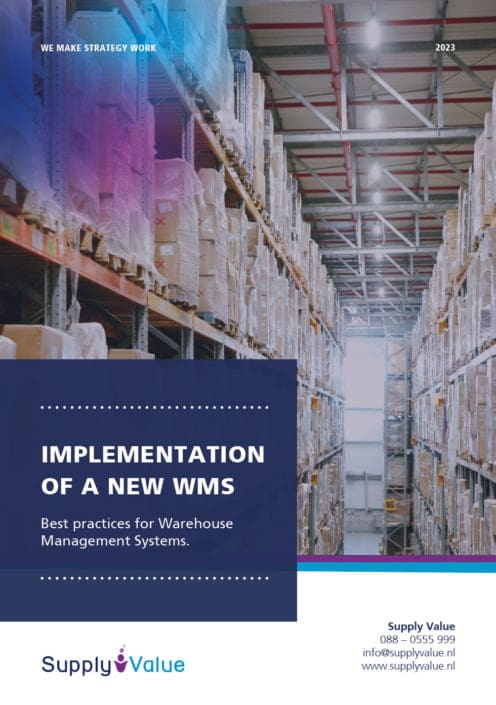Inventory management
Inventory management is a critical component of supply chain operations that enables organizations to optimize efficiency, reduce costs, and deliver exceptional customer experiences. Supply Value can help your business towards effective inventory management and provide insights into key strategies and best practices.
Implementing inventory optimization techniques such as just-in-time (JIT) and economic order quantity (EOQ) helps streamline operations and minimize excess inventory. JIT ensures that inventory is ordered and received just in time for production or customer demand, reducing storage costs and eliminating obsolete stock. EOQ calculates the optimal order quantity based on factors like holding costs and order costs, enabling organizations to strike a balance between inventory levels and costs.
Collaboration with suppliers and implementing vendor-managed inventory (VMI) programs can further optimize inventory management. VMI allows suppliers to monitor and manage inventory levels on behalf of the organization, ensuring timely replenishment and reducing stockouts. Collaborative relationships with suppliers facilitate better demand forecasting, lead time management, and efficient order fulfilment.
In conclusion, effective inventory management is crucial for optimizing supply chain efficiency, reducing costs, and meeting customer expectations. By implementing strategic strategies, leveraging technology, fostering collaboration, and embracing continuous improvement, organizations can achieve streamlined inventory operations and drive profitability. Investing in inventory management practices positions businesses for success in today’s competitive market landscape.
We make strategy work
Whitepaper: Inventory Management
Imagine this: your organization is incurring unnecessarily high costs because you have built up excess inventory. Or you’re losing customers because you don’t have the requested products in stock and, as a result, cannot deliver your products on time. These are two...
Optimizing Inventory Management: The Success Story of Freudenberg with Supply Value
As a manufacturing company, inventory management is an essential part of the process. Think of dealing with issues such as overstocking, stockouts, and inefficient inventory rotation. These issues can lead to unnecessary costs, missed sales opportunities, and...
Whitepaper: Implementation of a new Warehouse Management System (WMS)
Customers increasingly expect more from retailers, the construction of new warehouses is restricted, and there is a shortage in the labour market. These factors contribute to a stable business case for implementing a future-proof Warehouse Management System (WMS). But...
MORE INFO? CONTACT OUR EXPERTS



Contact us
Contact us today for a free consultation and discover how Supply Value can revolutionize your supply chain operations. Let us be your trusted partner in achieving supply chain and operations excellence.



